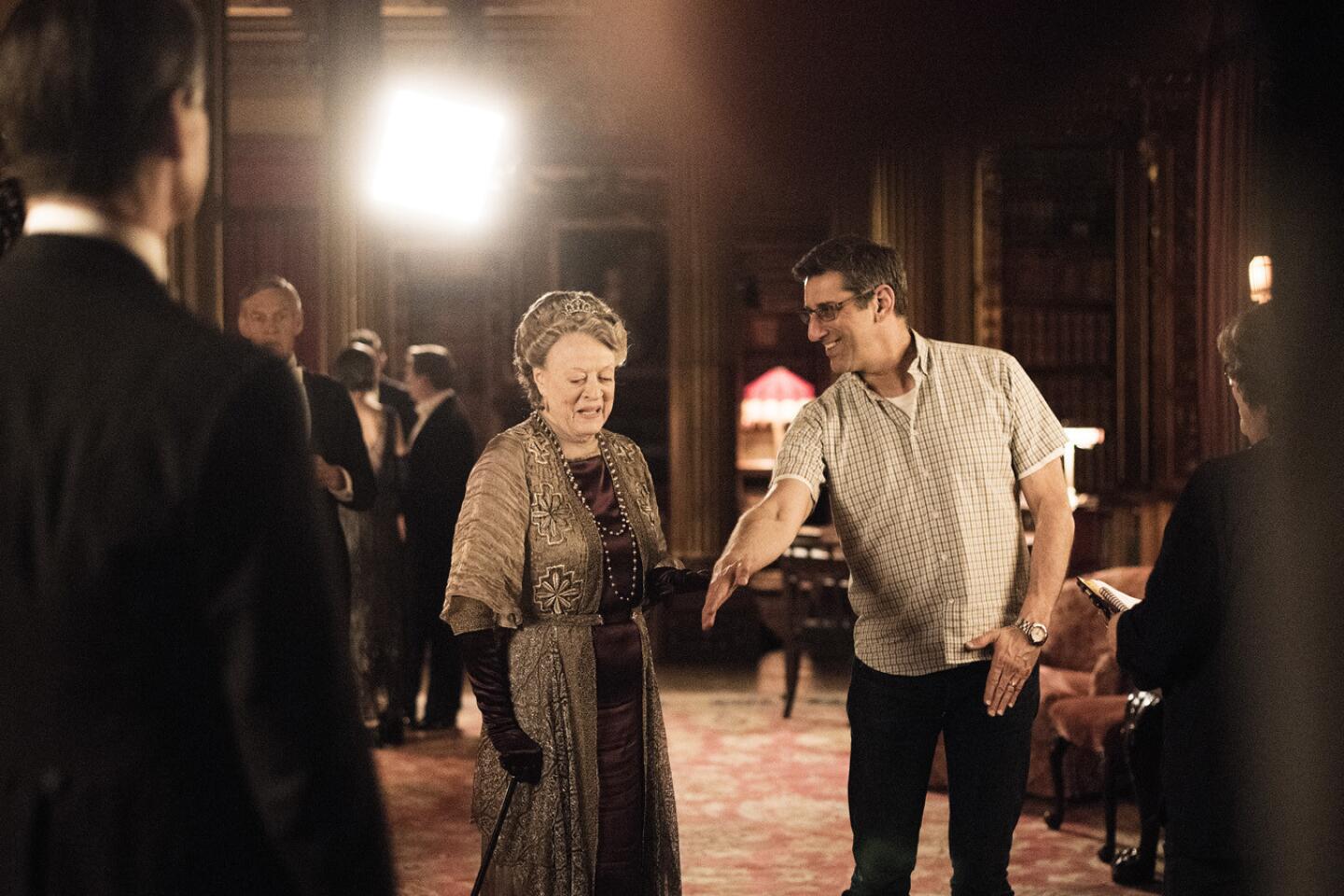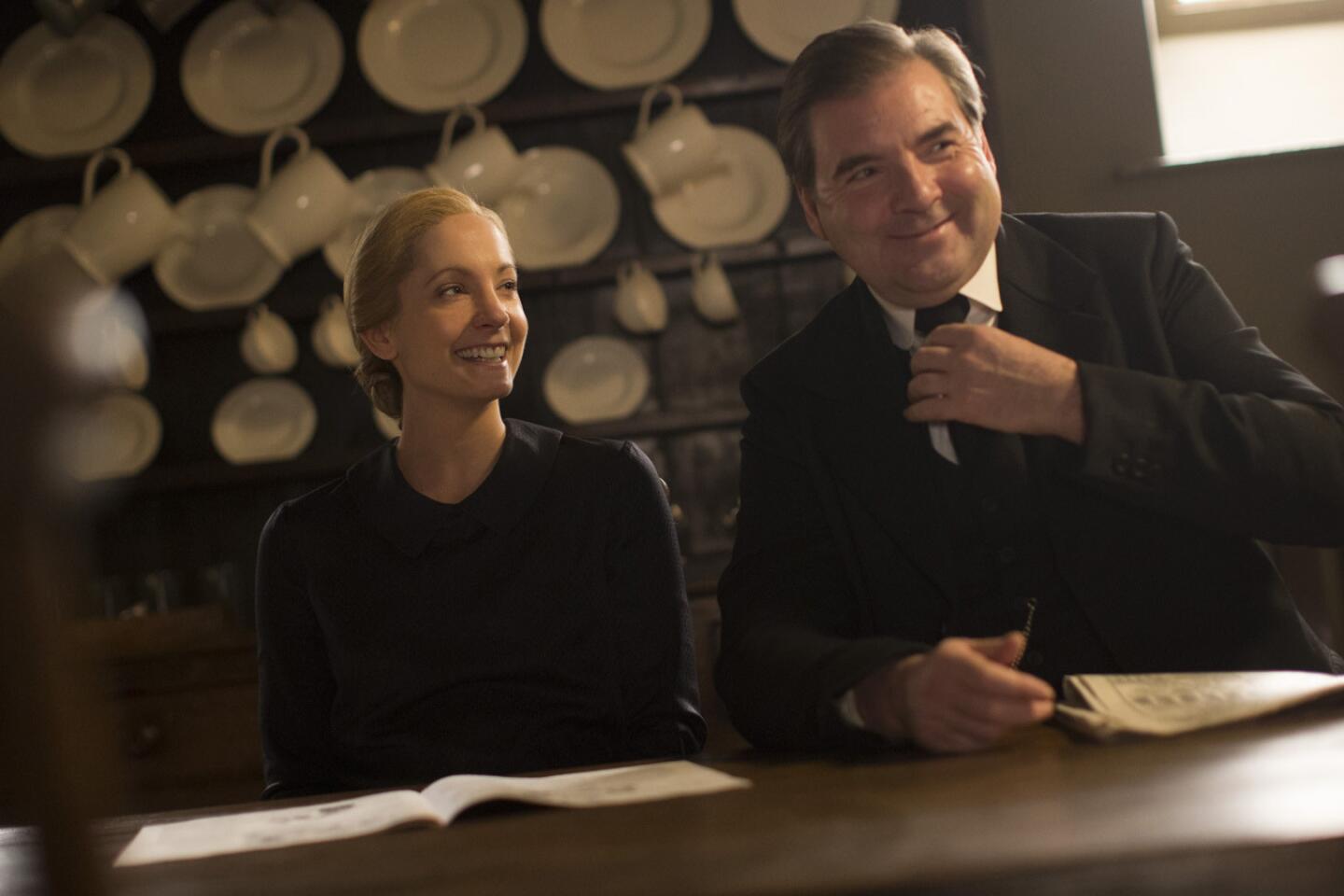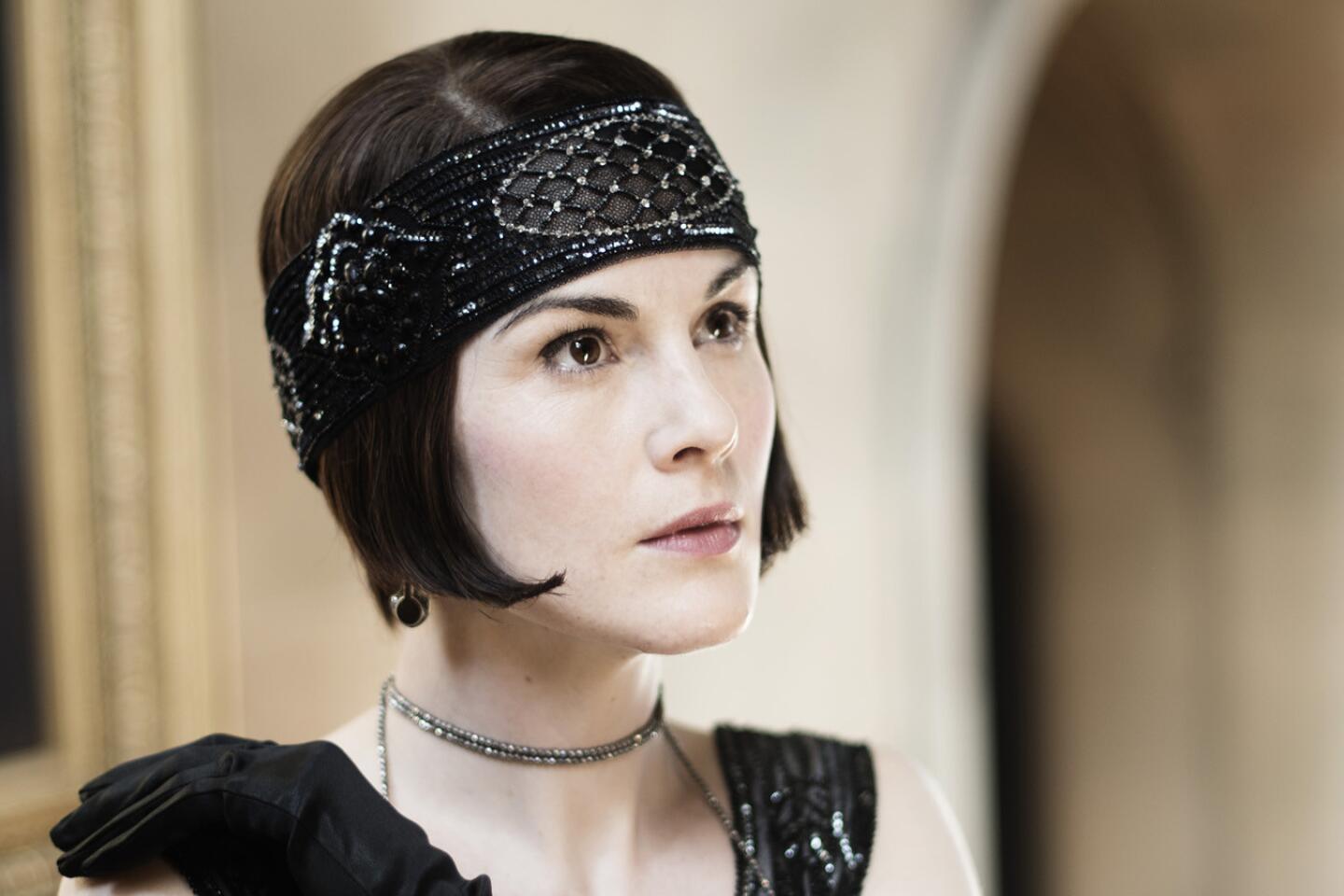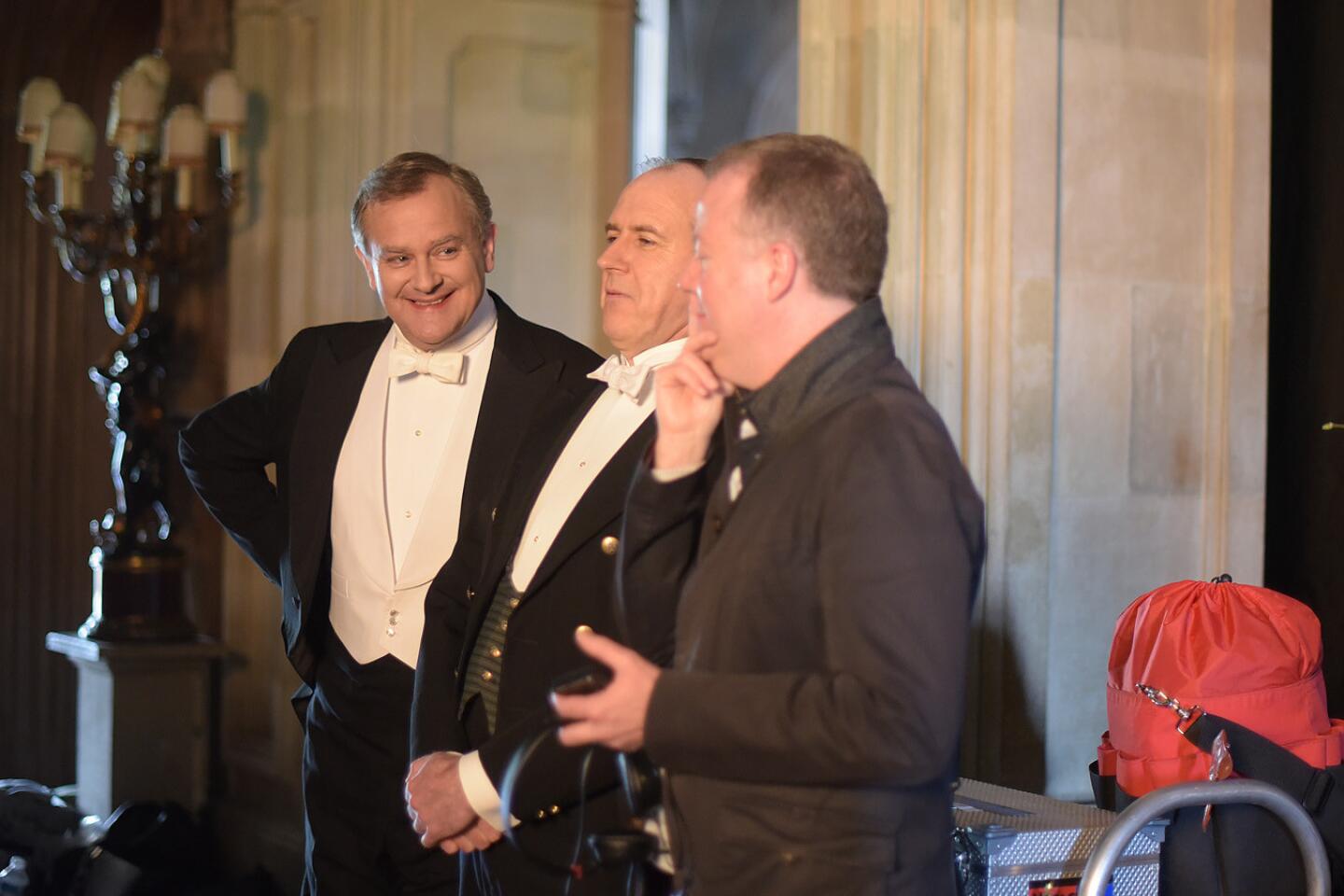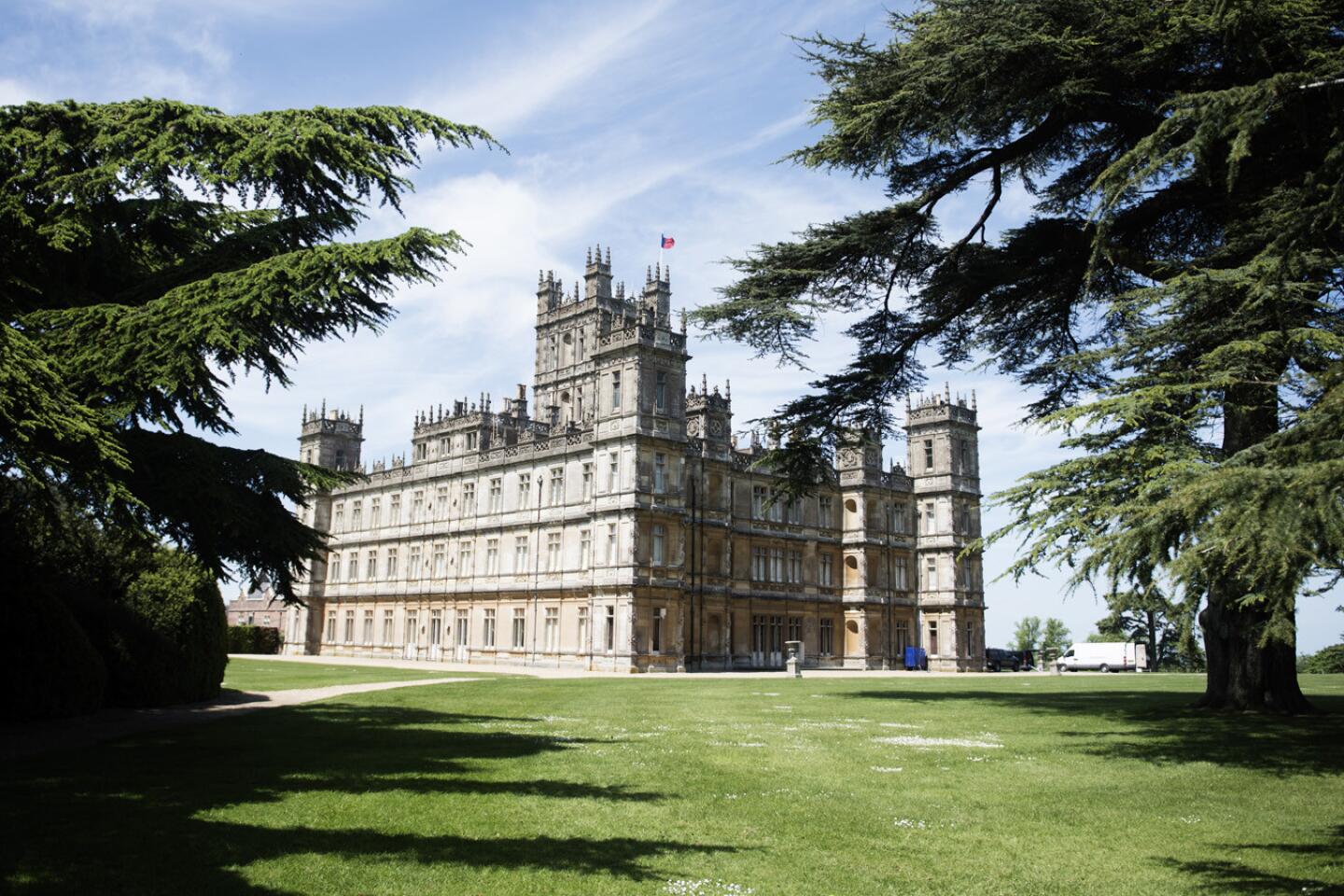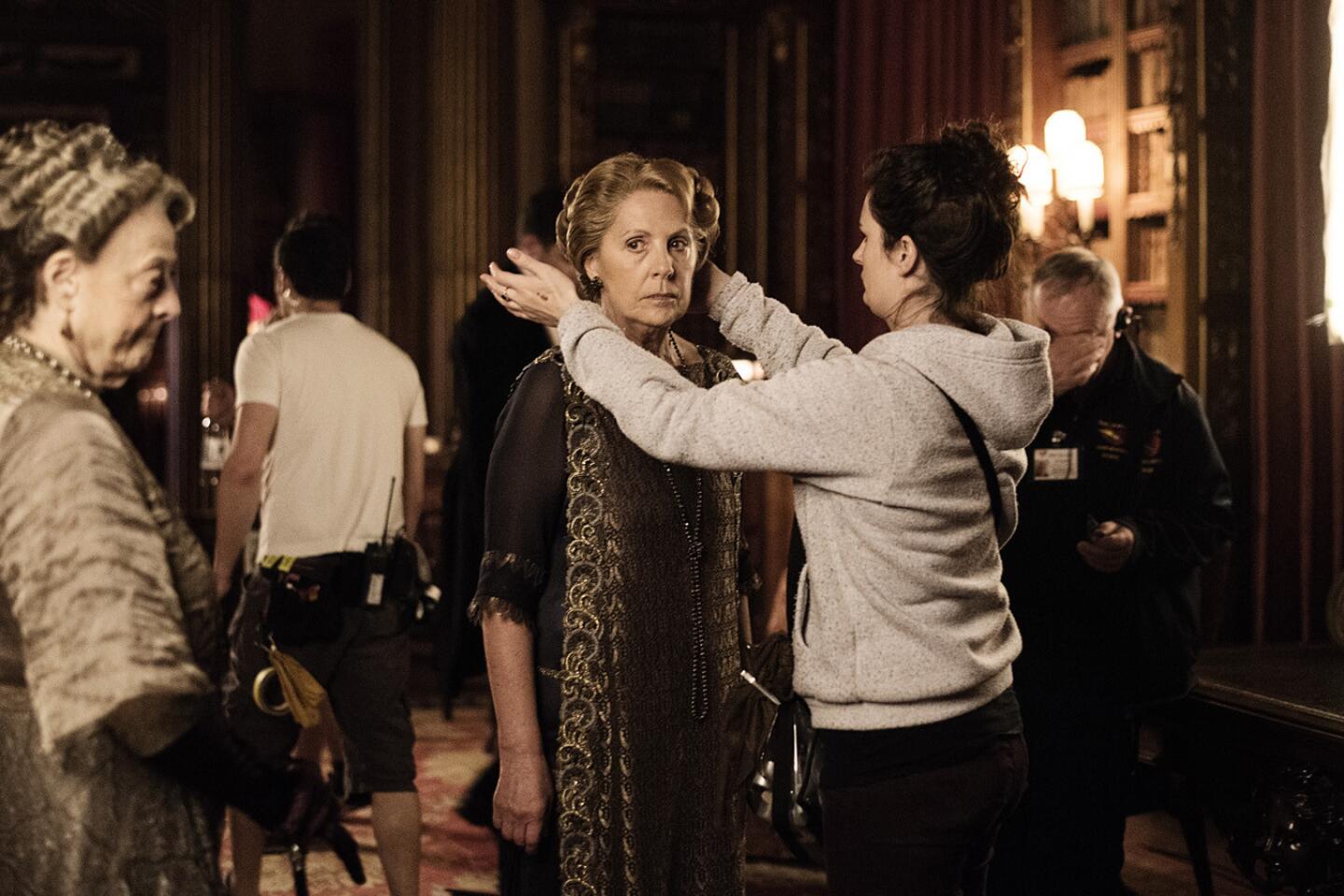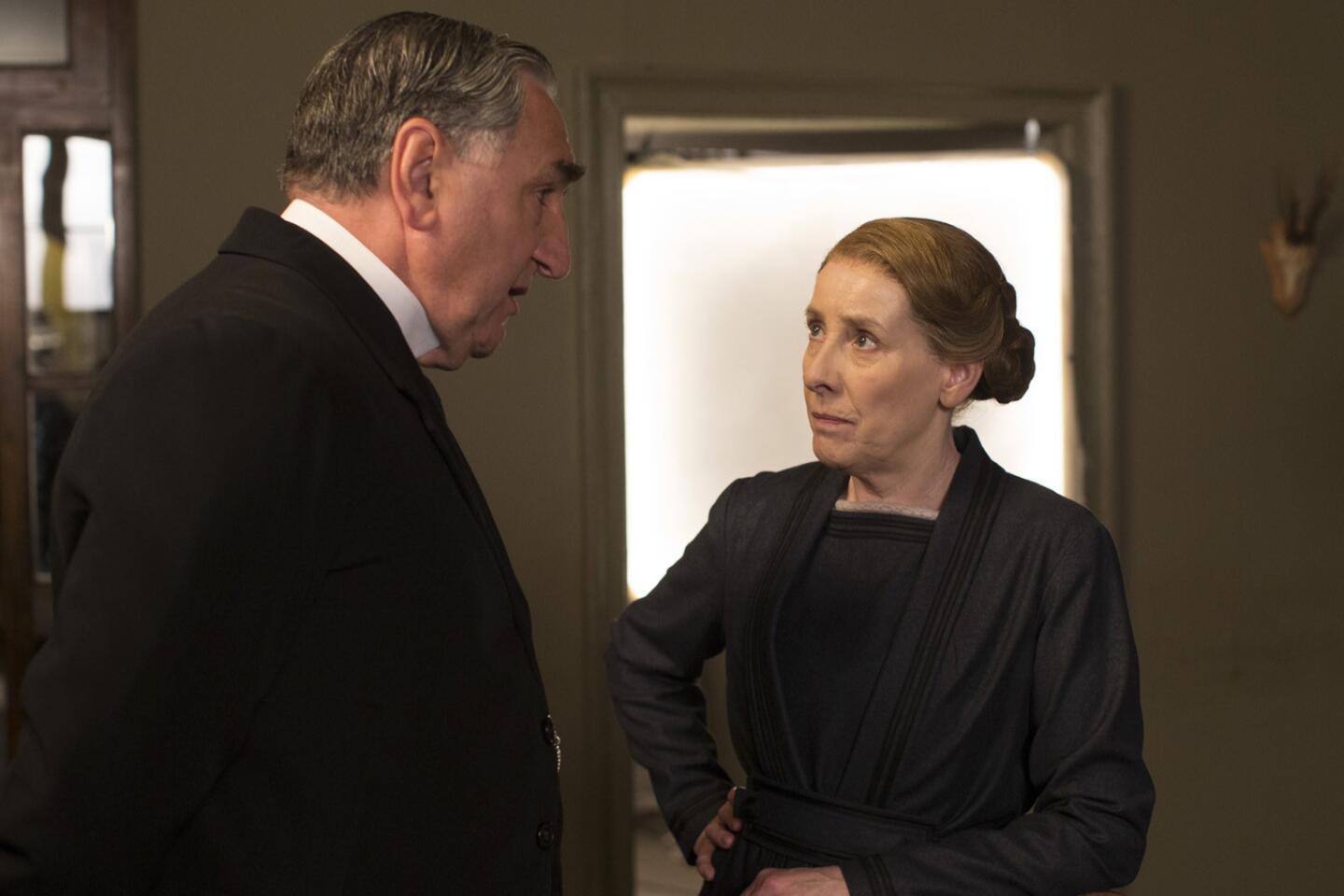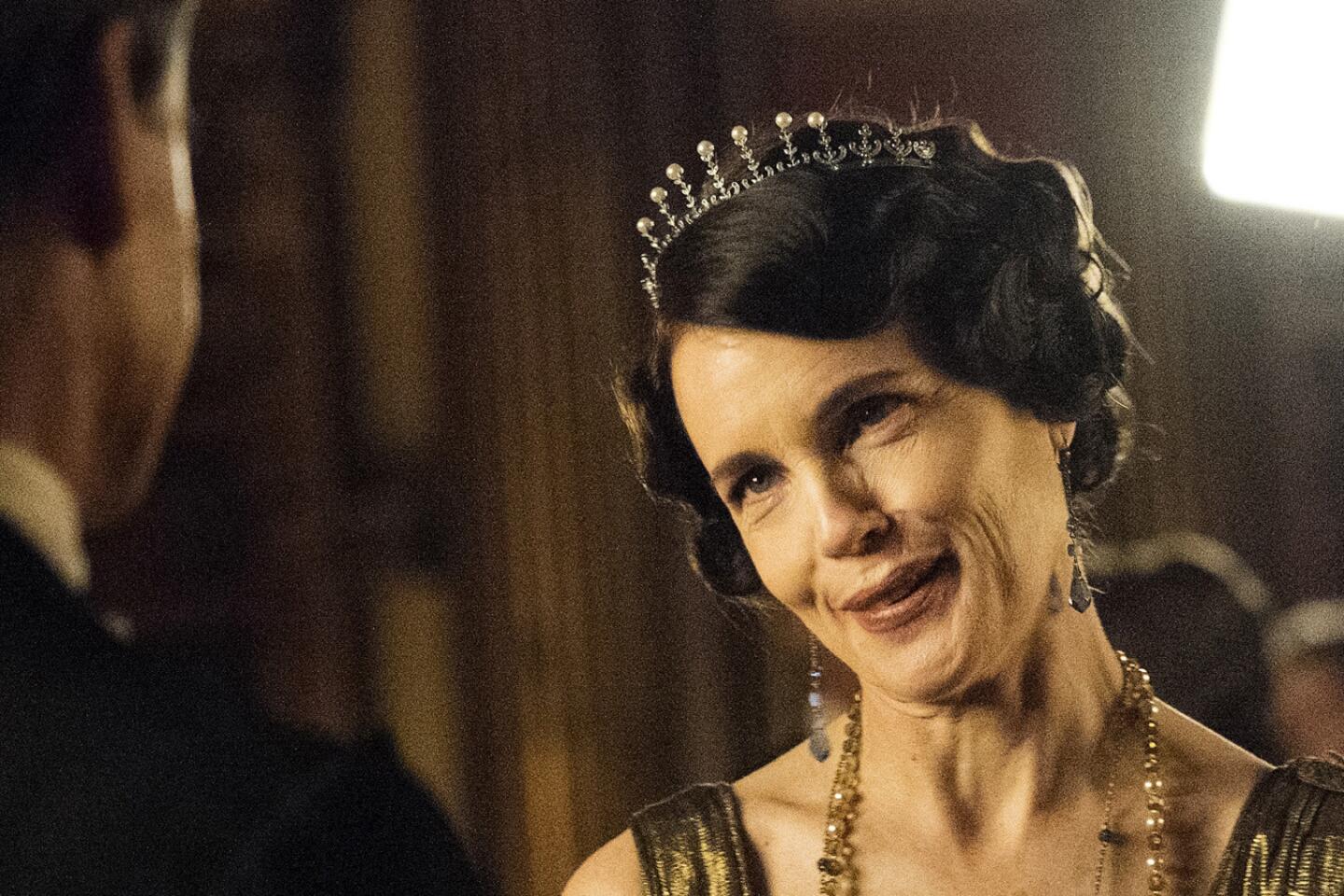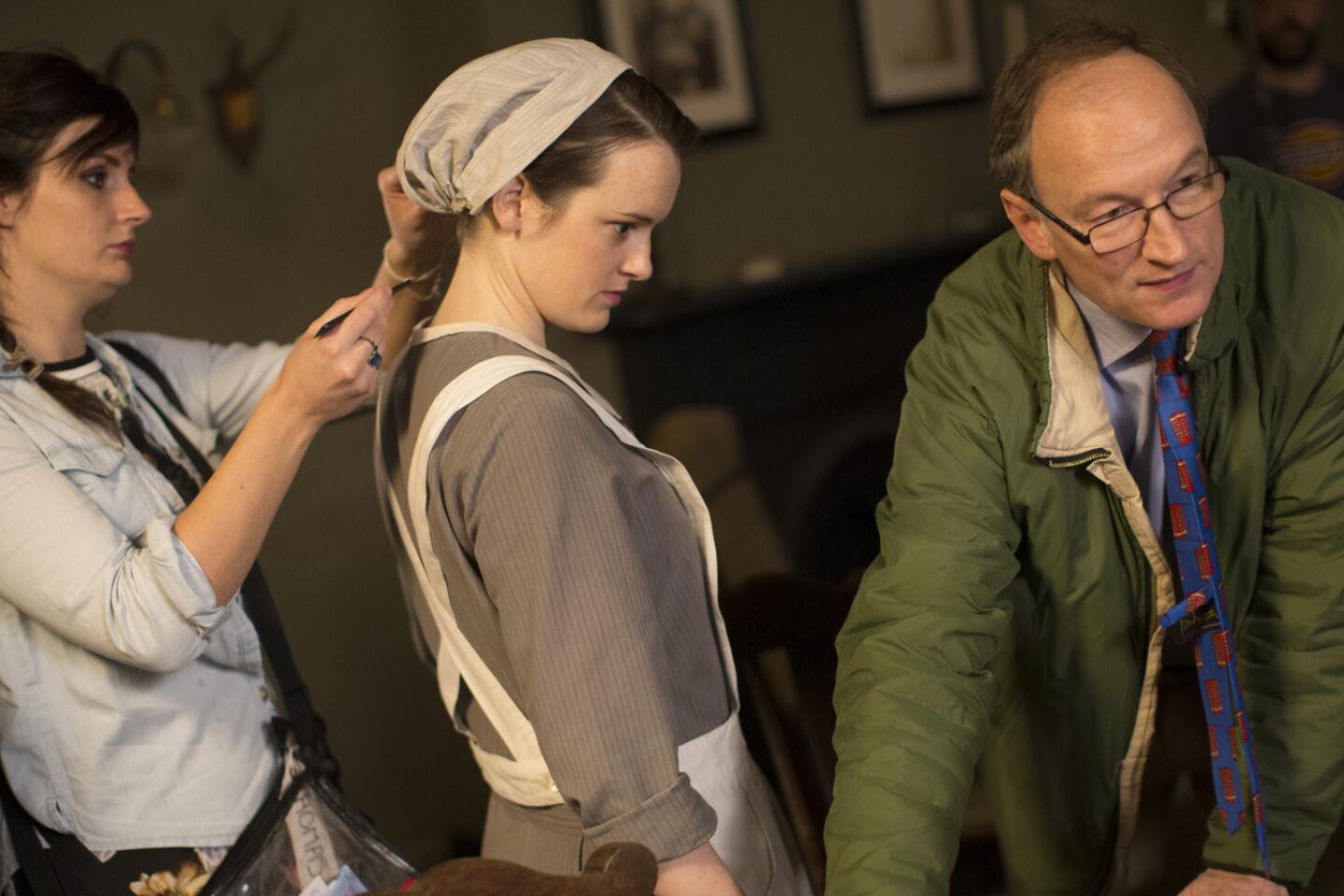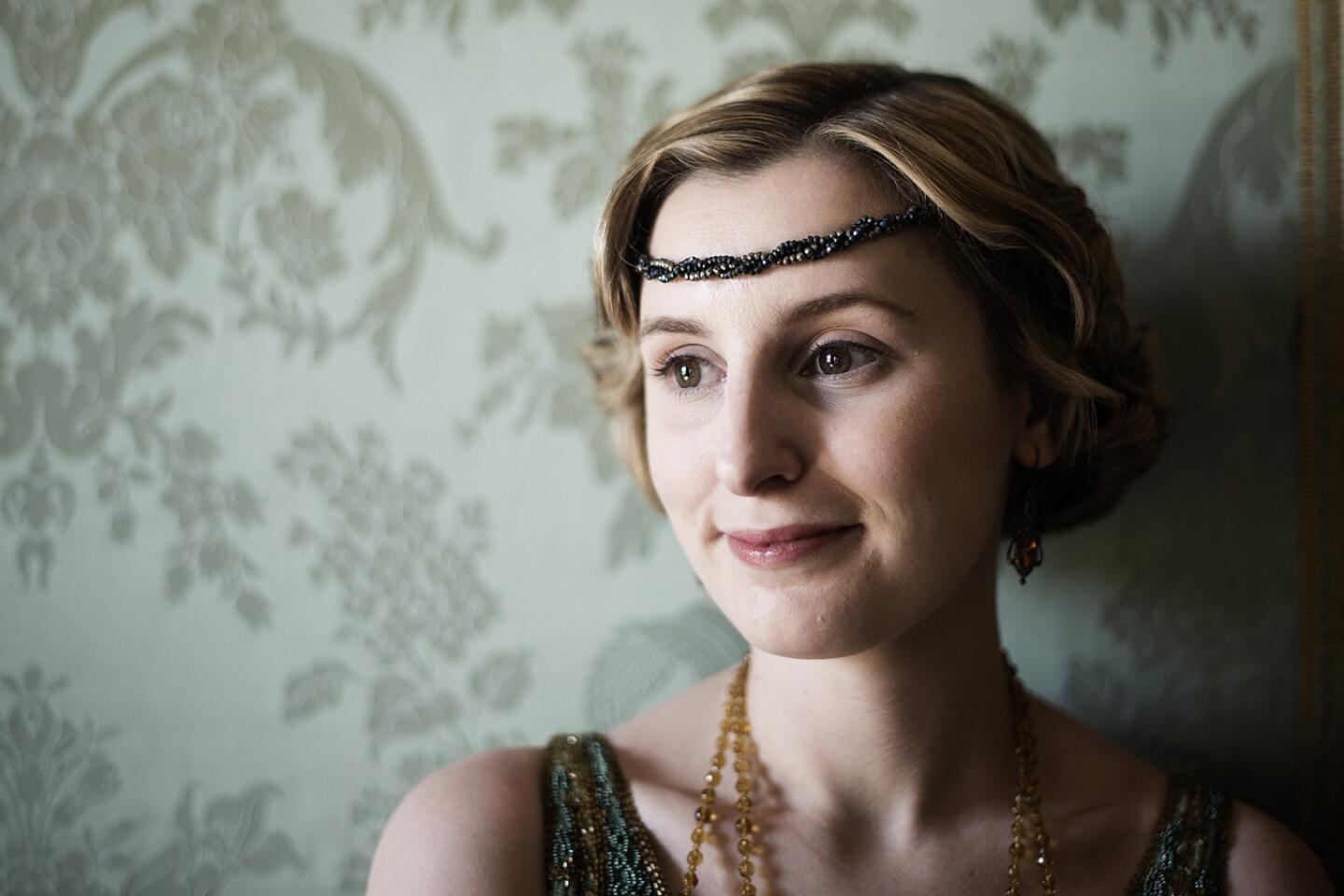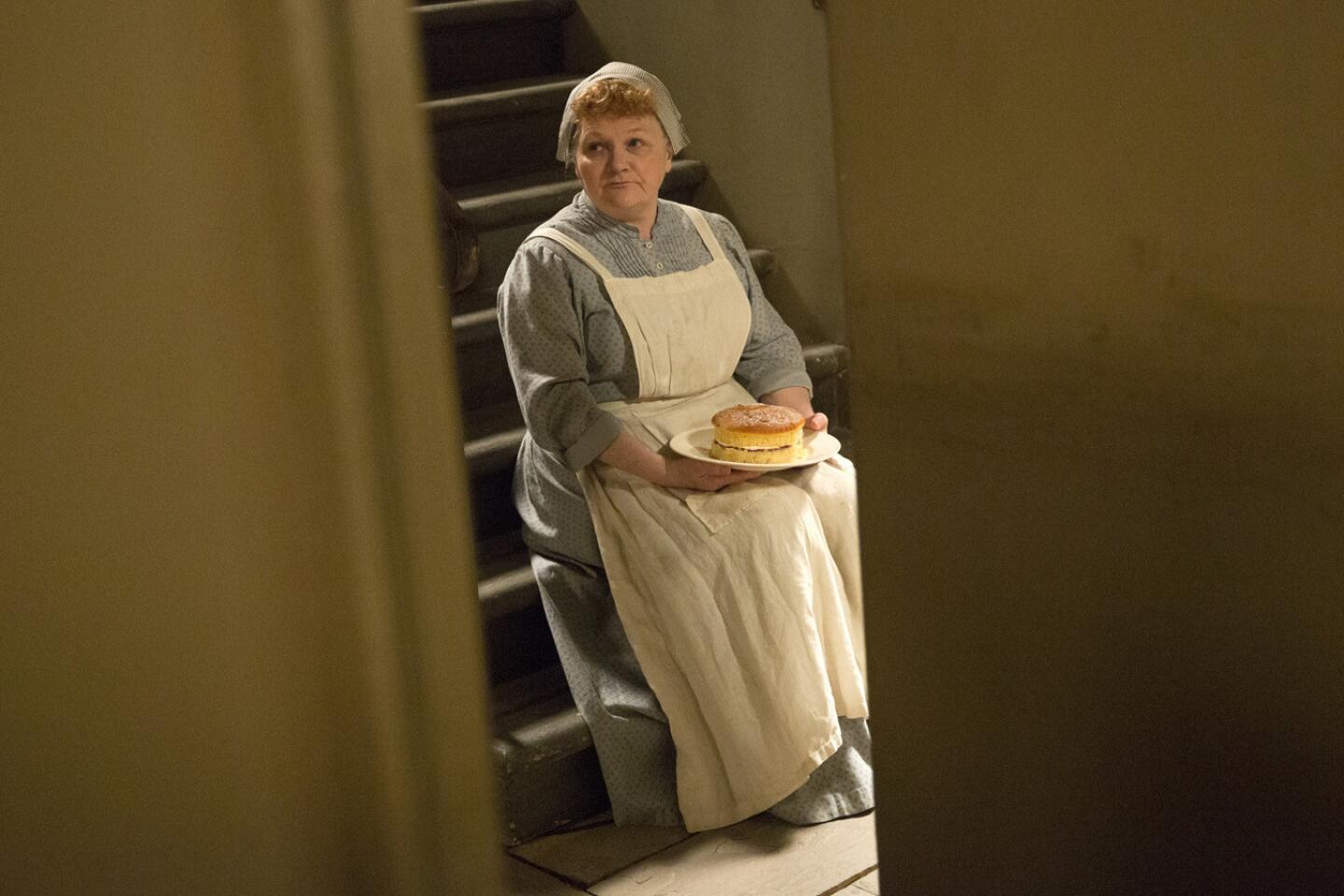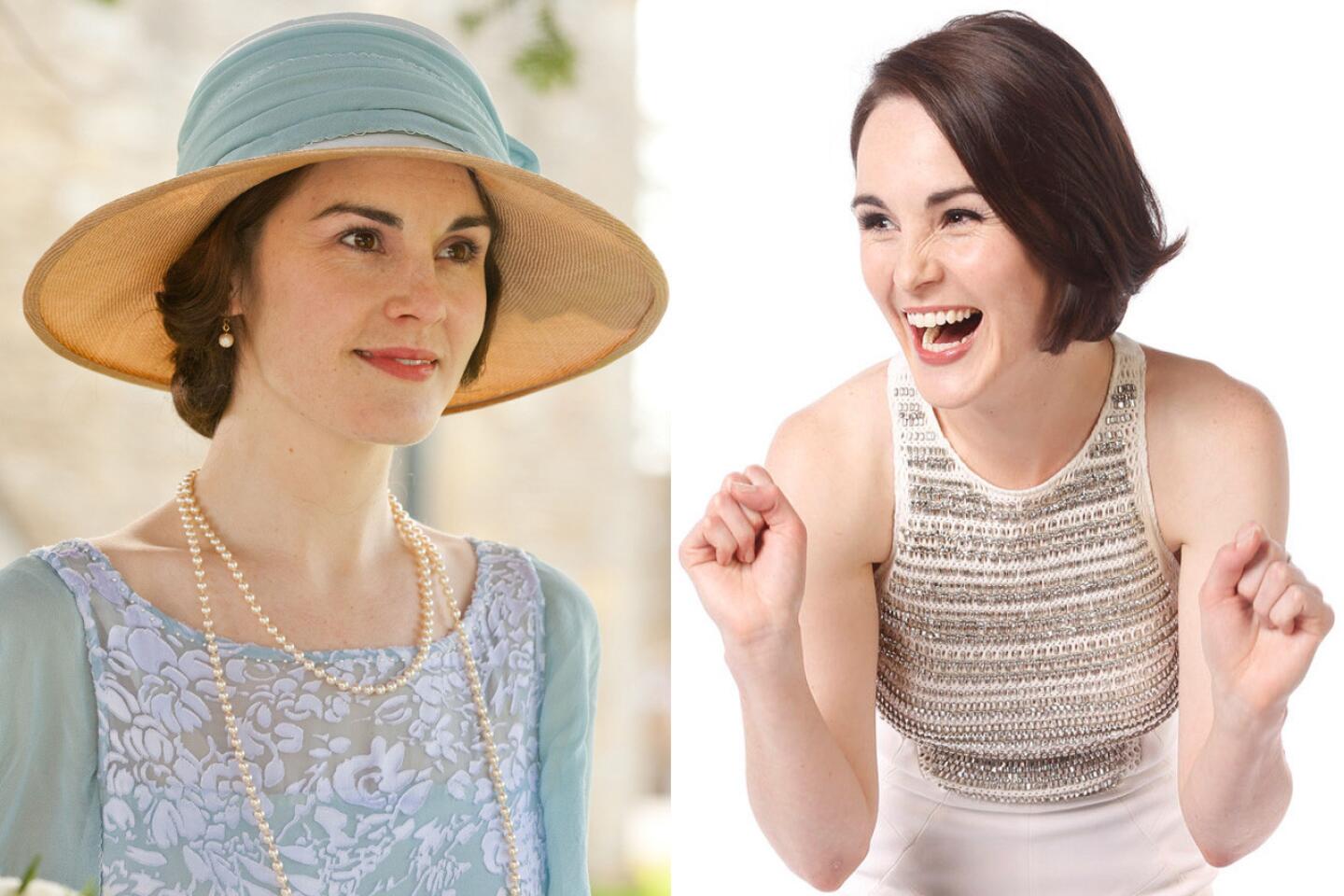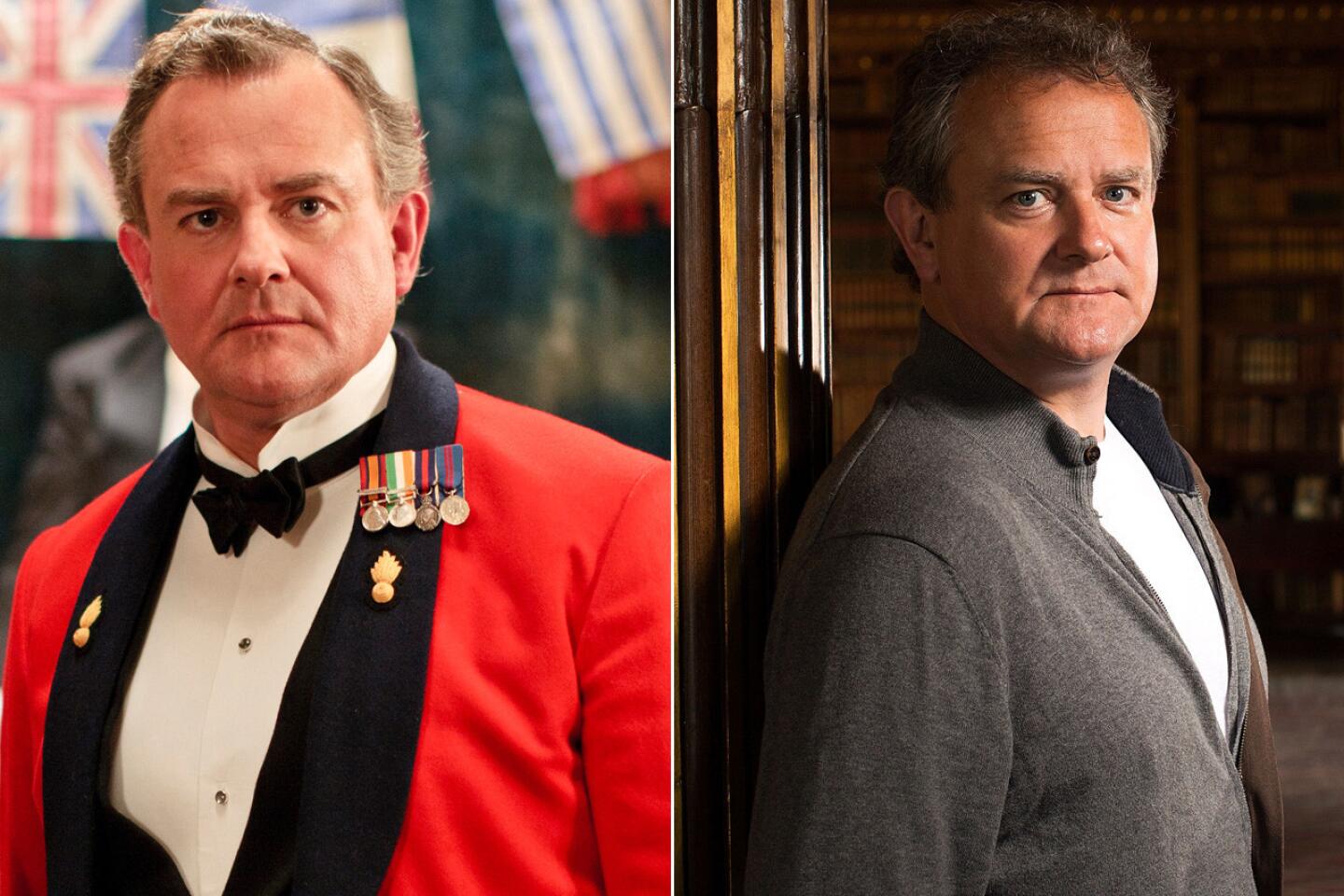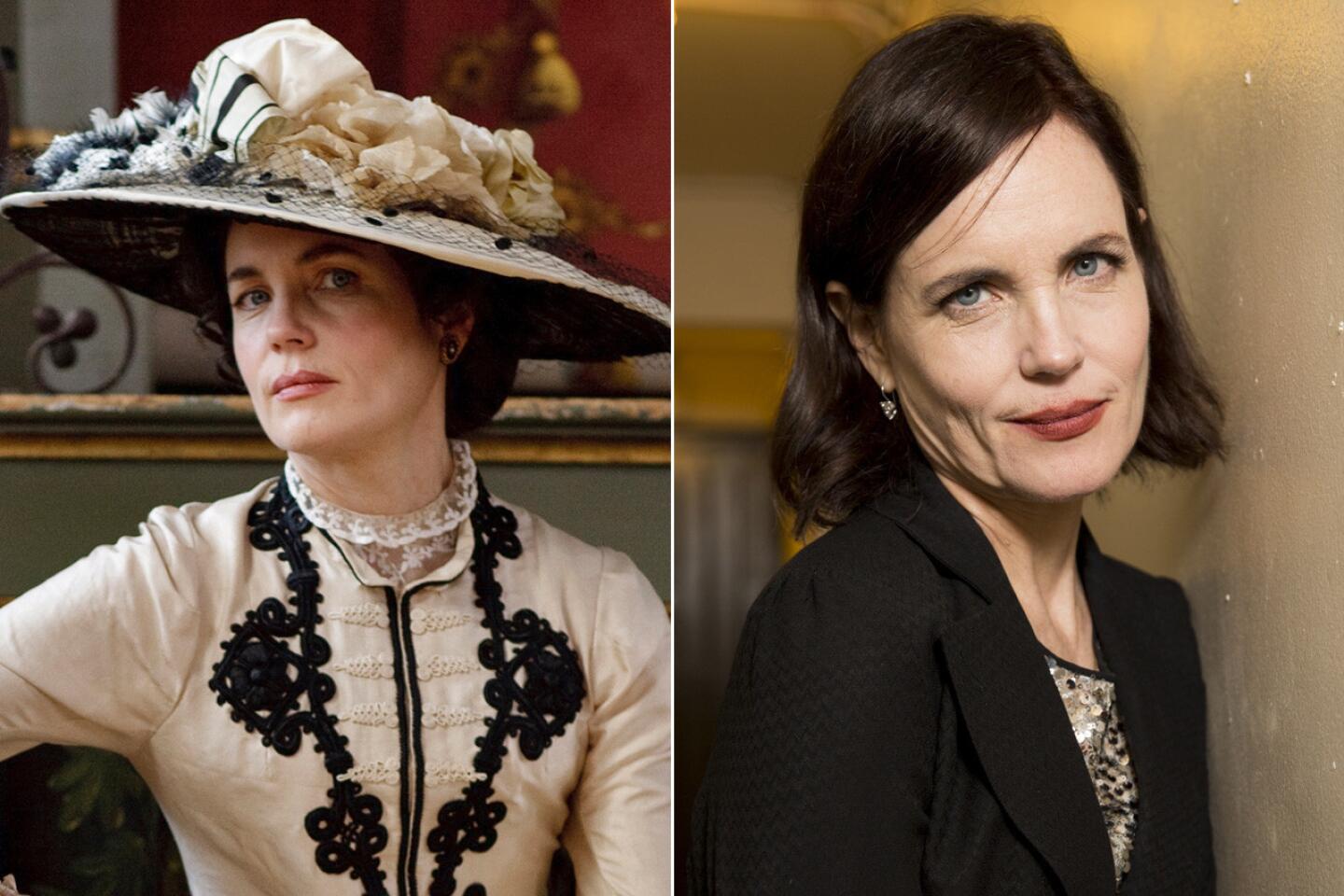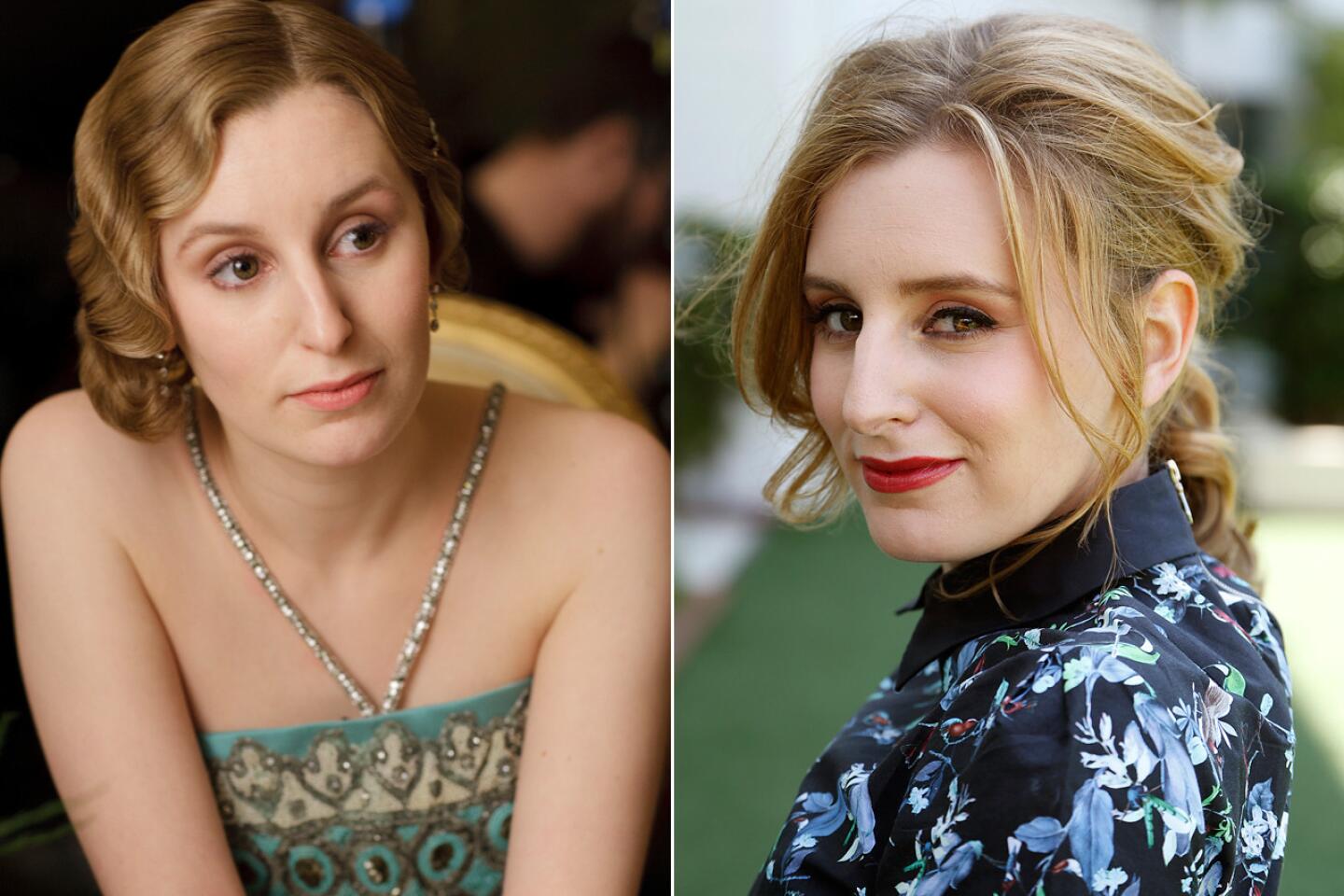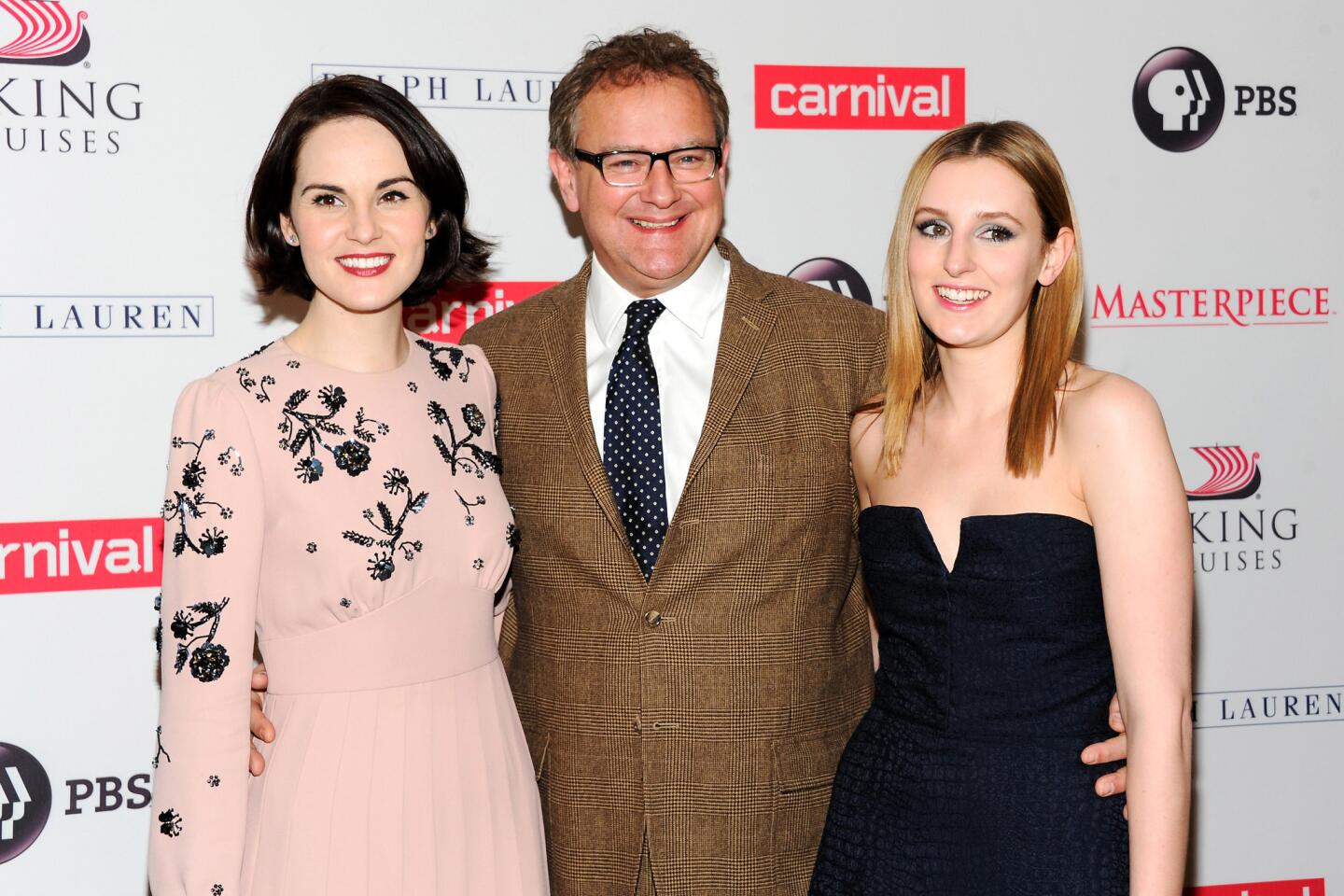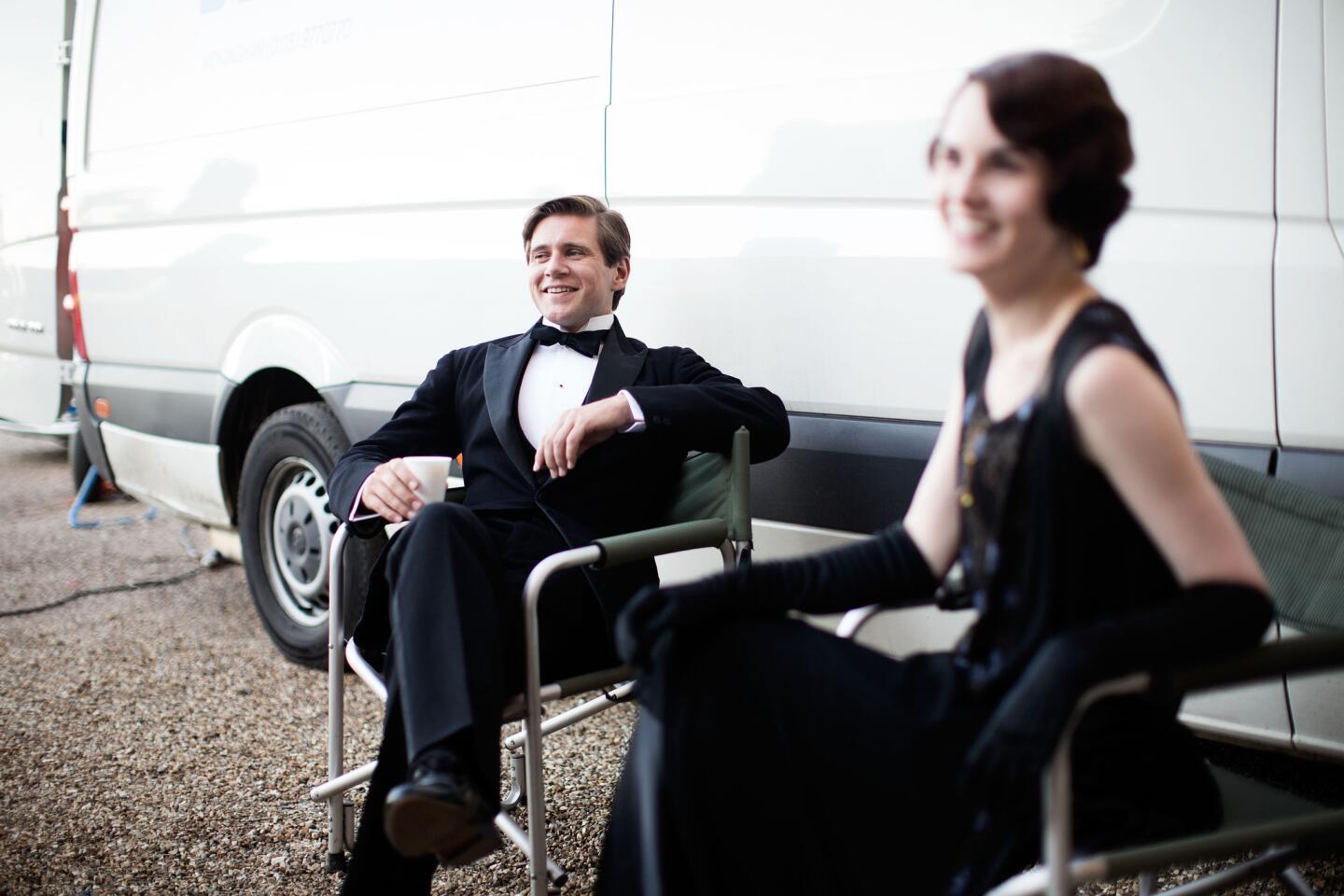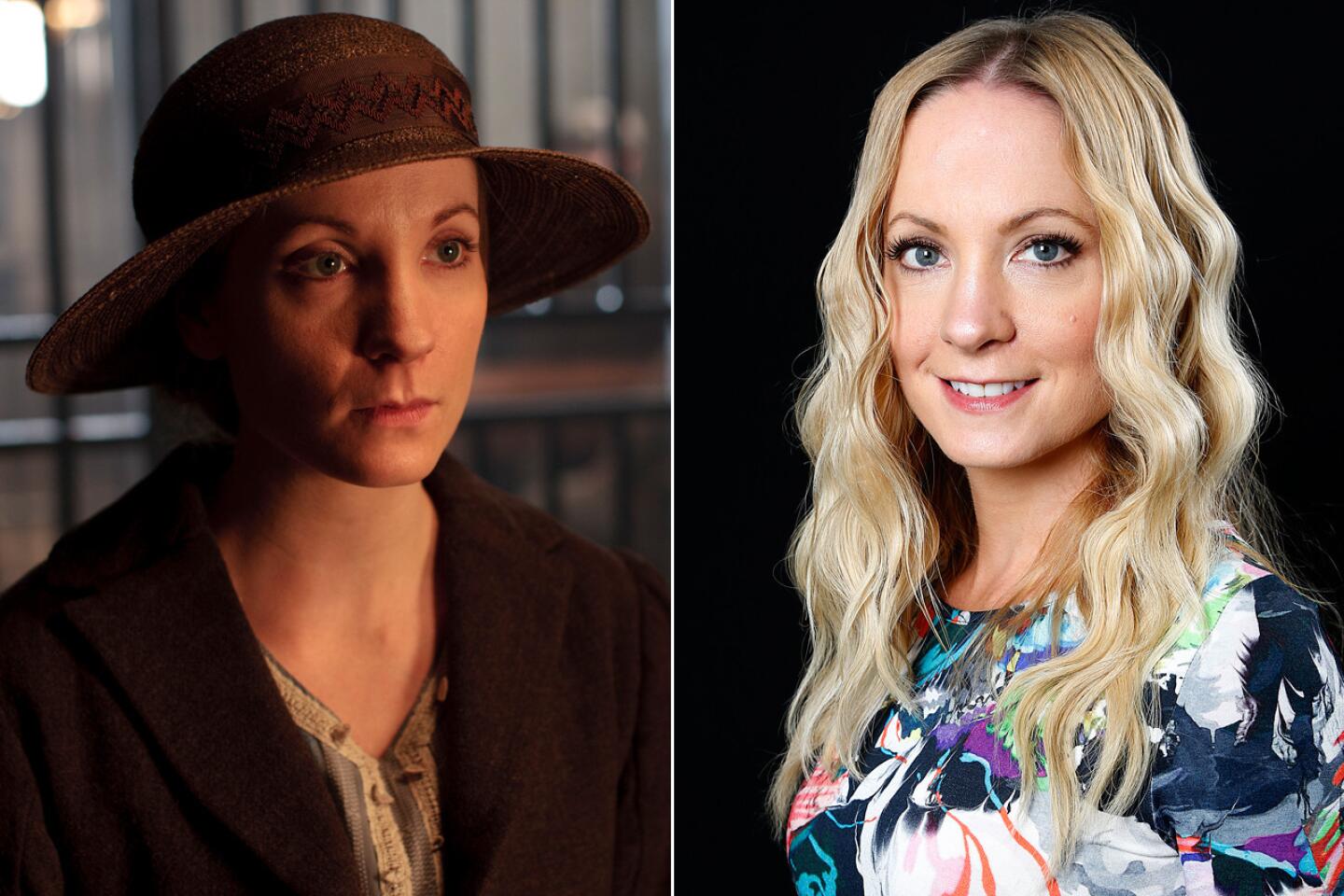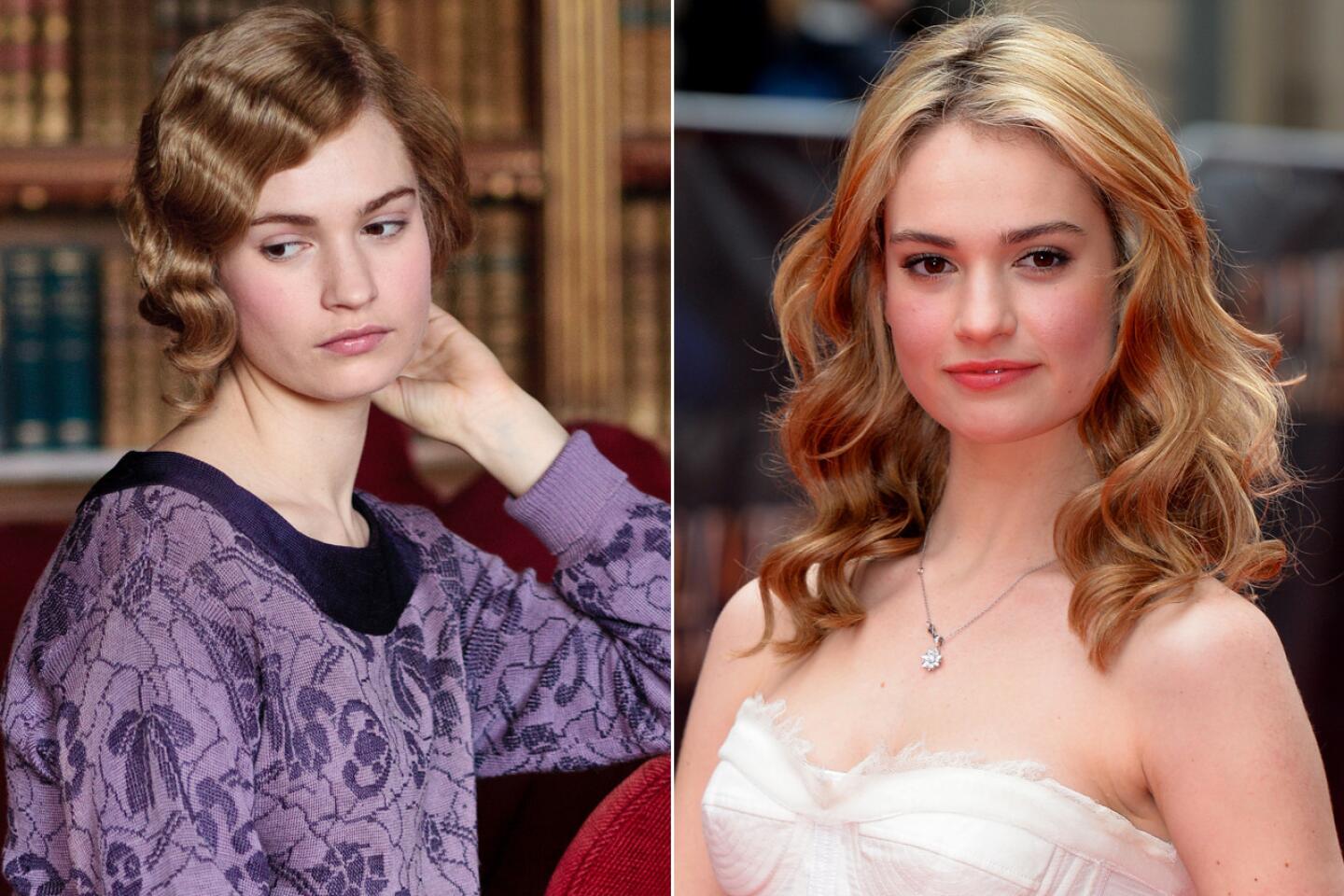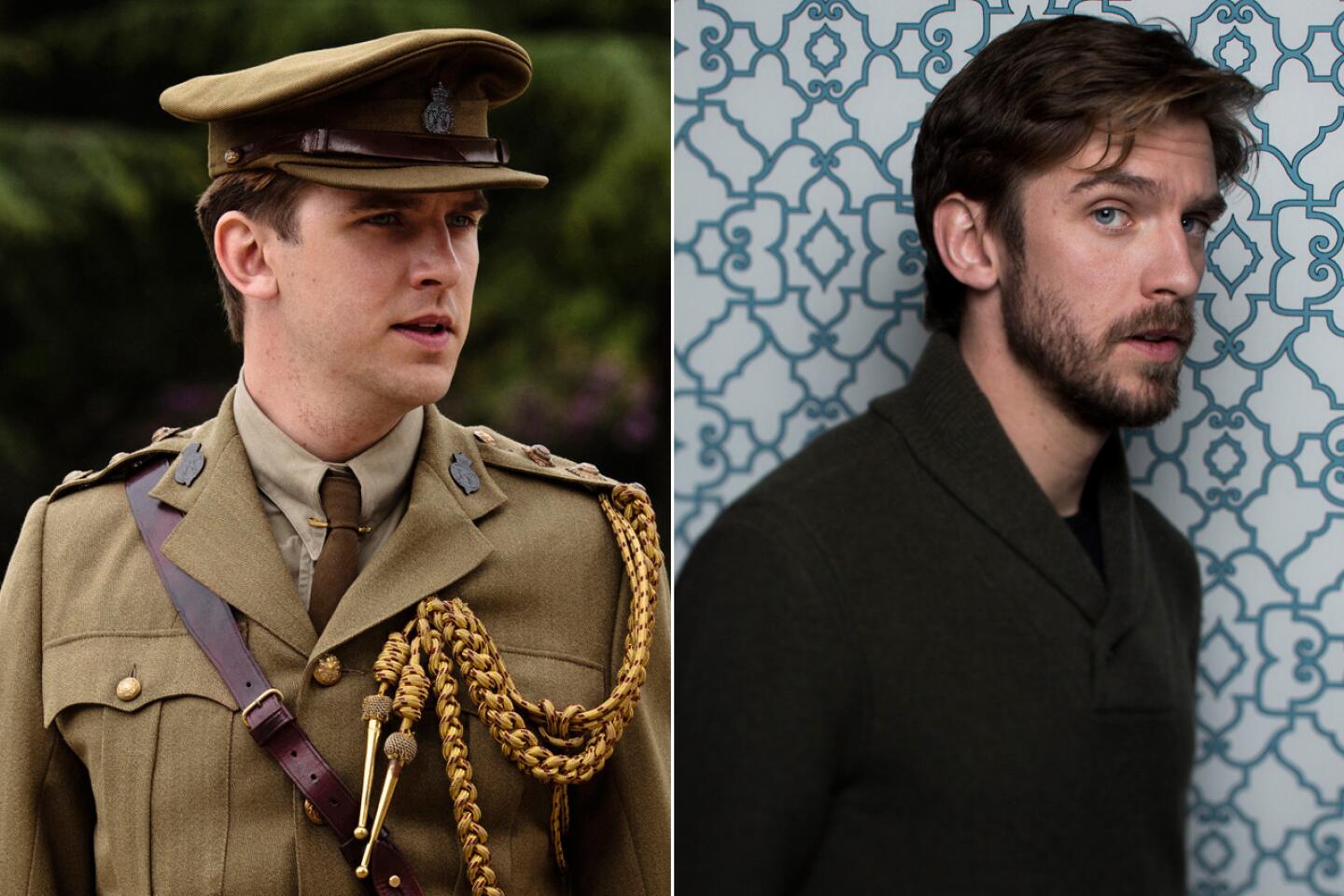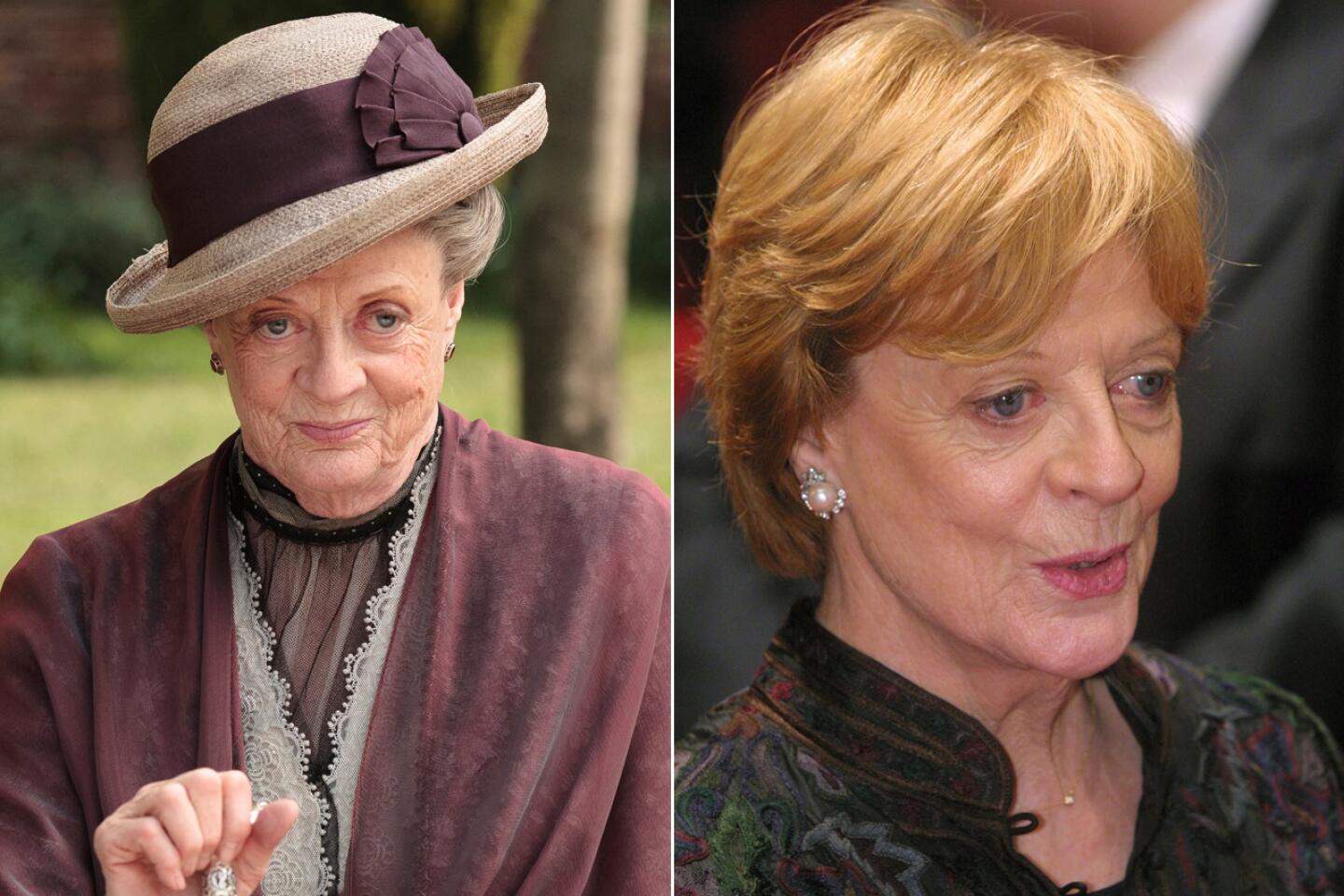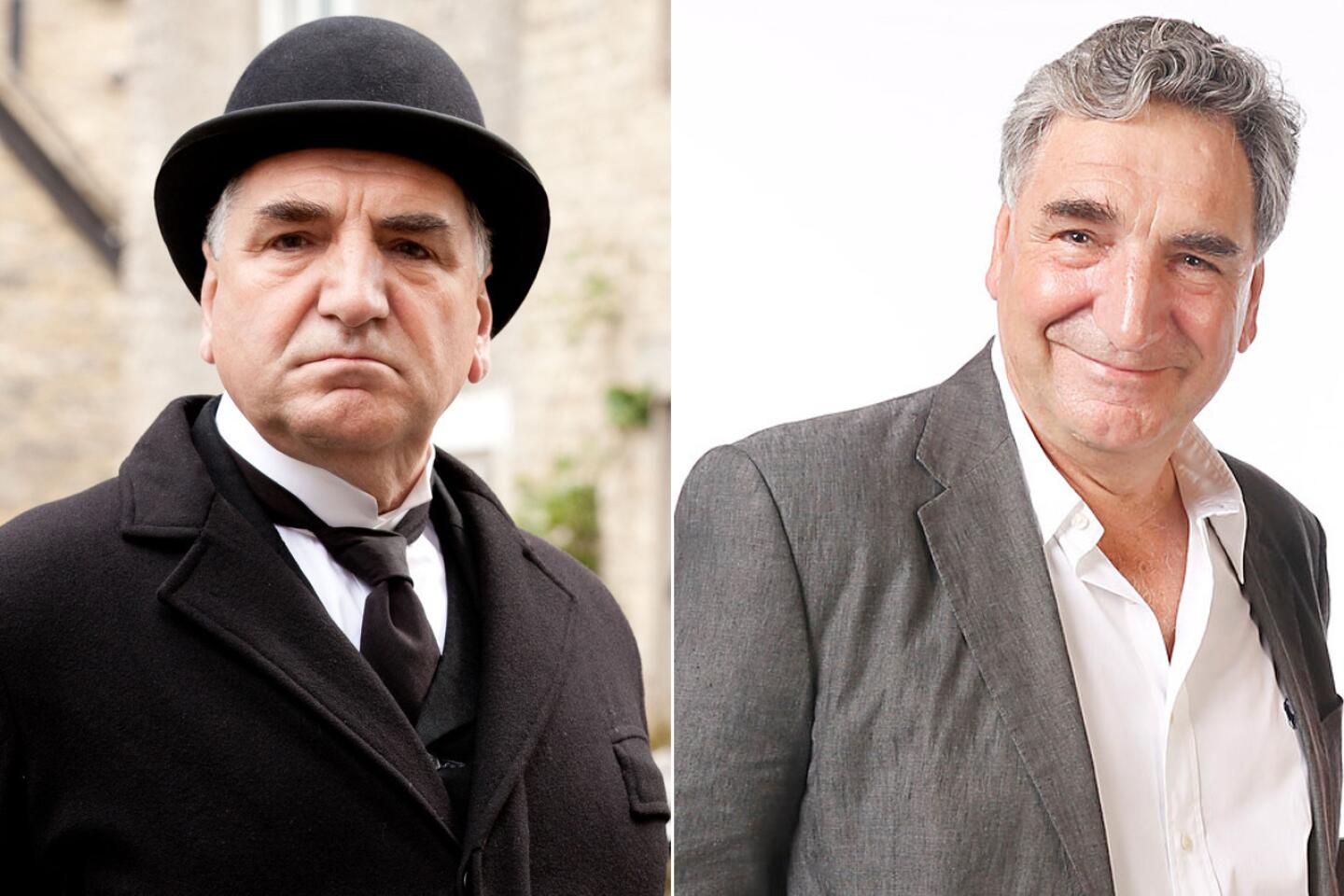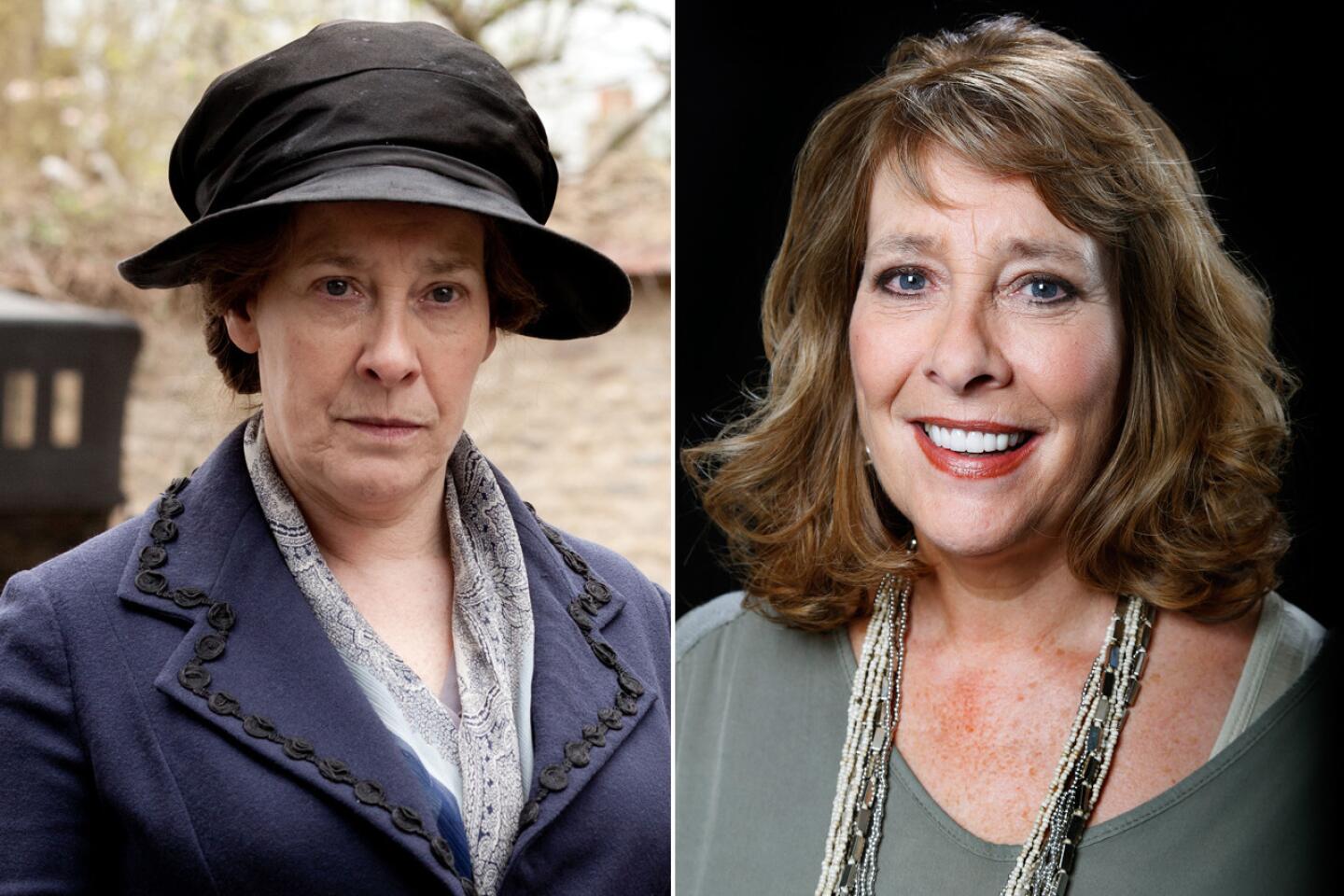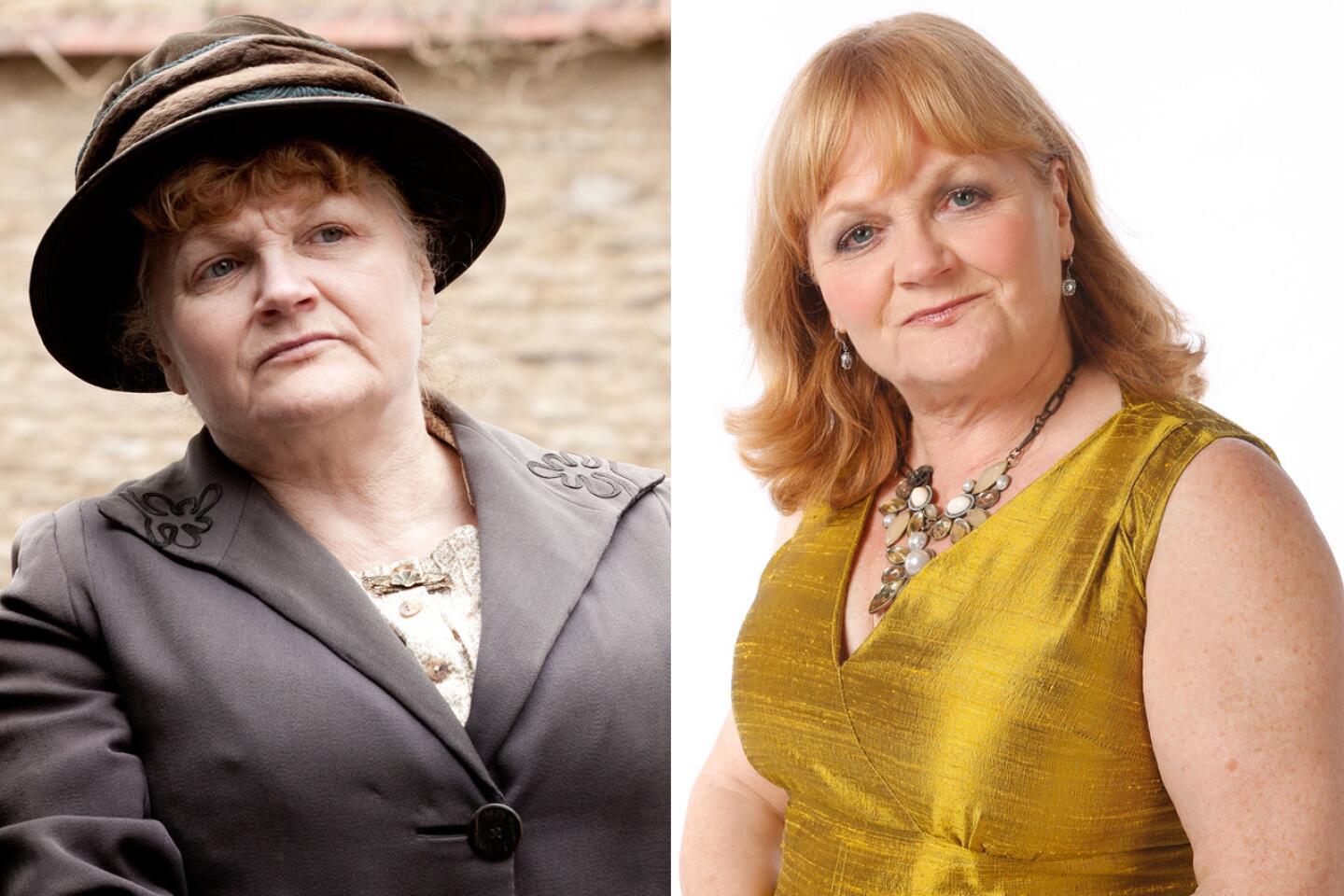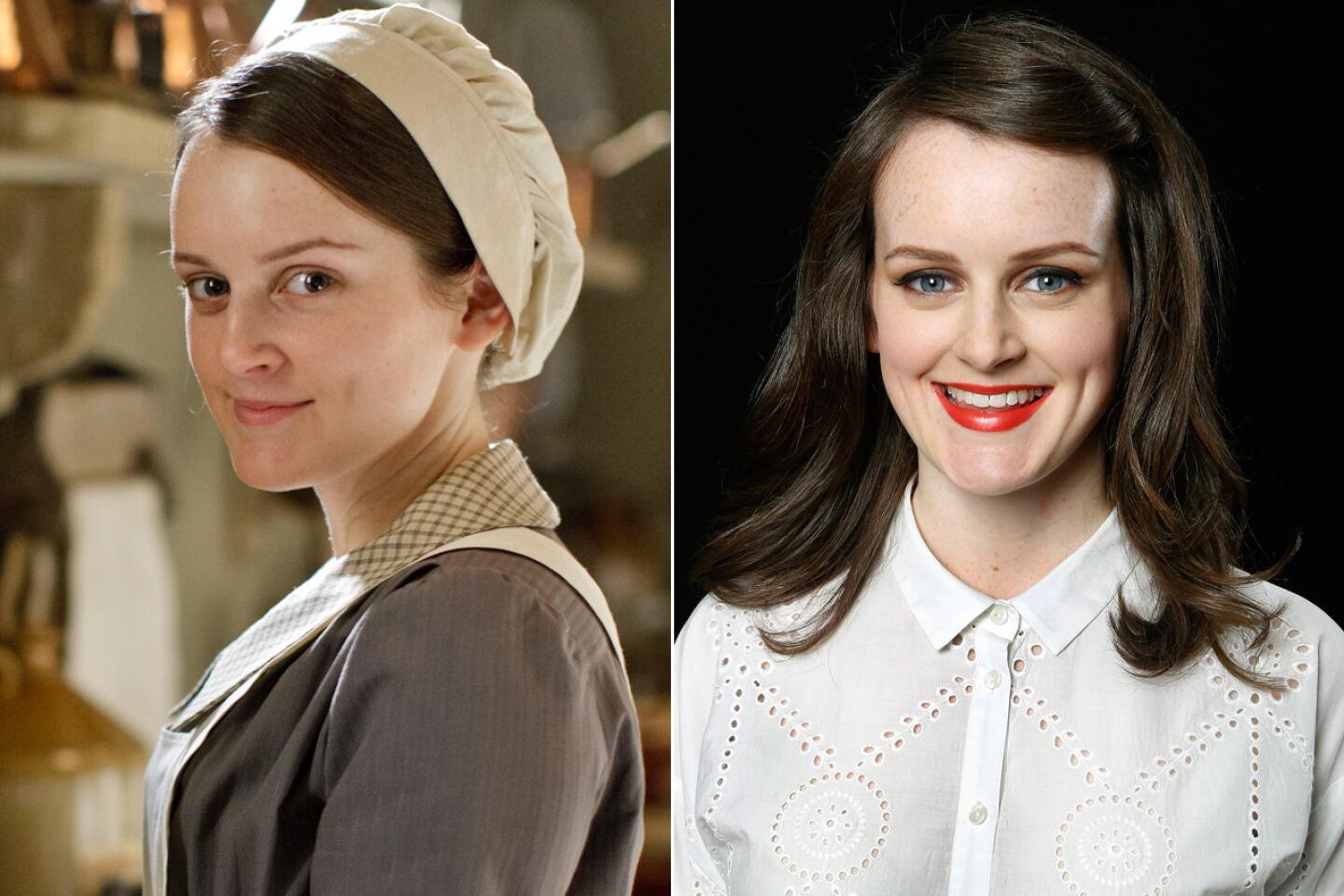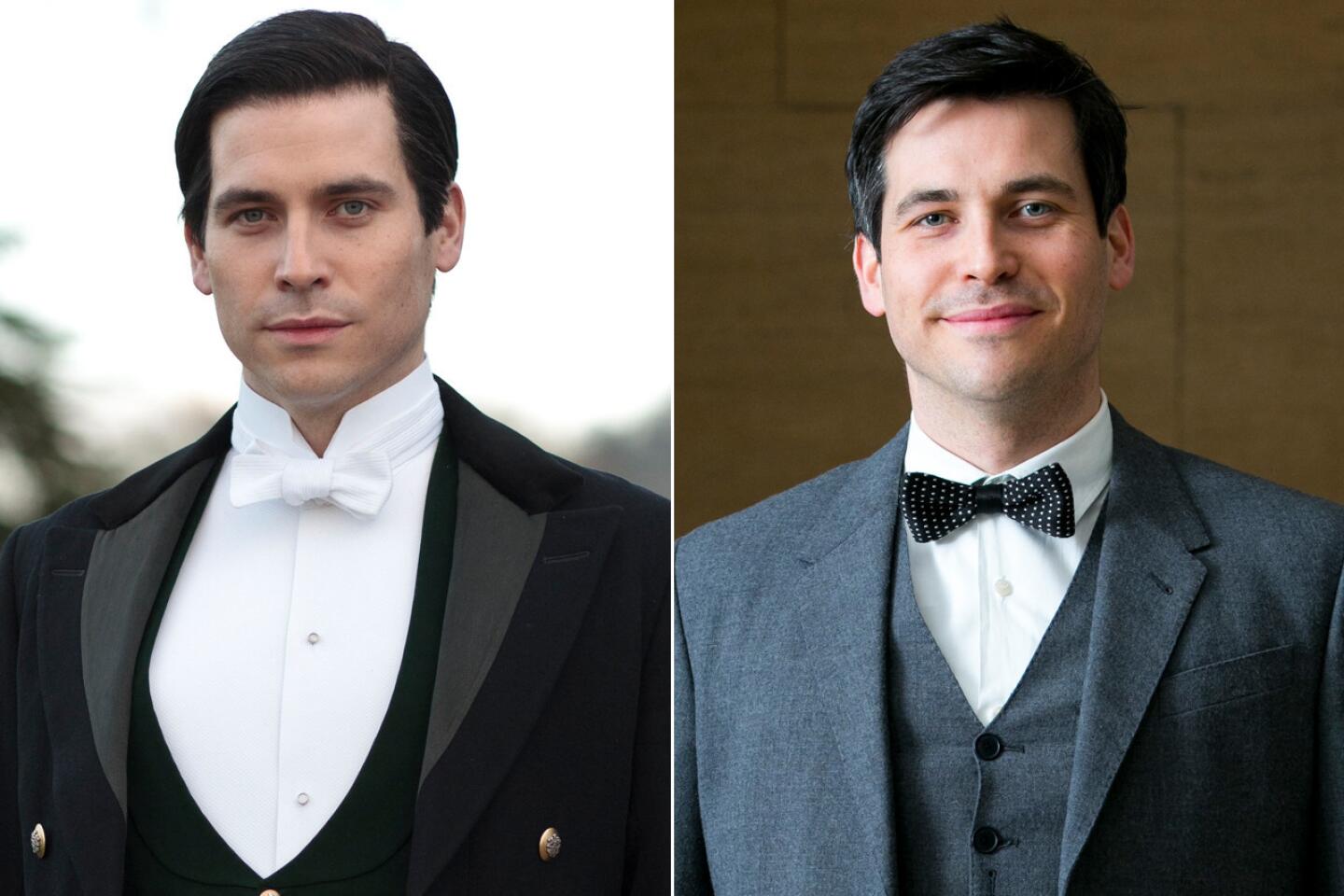Meet the historical advisor who gave ‘Downton Abbey’ the proper bedding, accents and, um, onions
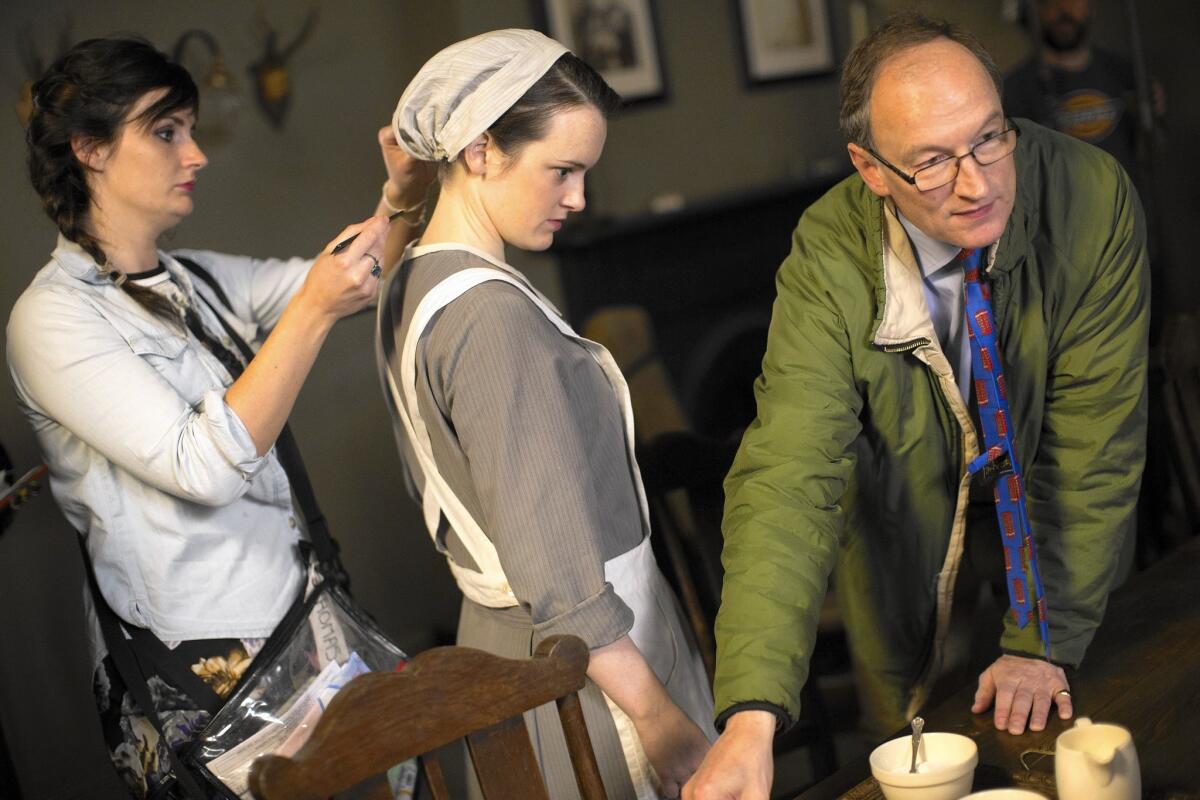
“I have an absolute hatred of crotch-grabbing. Can I show you what I mean?” said Alastair Bruce, historical advisor on “Downton Abbey,” one crystalline spring afternoon at Highclere Castle, the Hampshire estate where the hit series on PBS was being filmed last year.
Nothing gets Bruce quite as riled up as slouchy, modern-day posture. From a picnic table on the estate’s vast lawn, he jumped to his feet to demonstrate, sloping his shoulders forward and clasping his hands over the waistband of his khakis.
FULL COVERAGE: ‘Downton Abbey’ news, features and intrique
“If only we could take one lesson out of this otherwise terrifyingly starched era and just stand up straight,” he said in an accent that would sound quite at home upstairs at Downton Abbey. “All men would be more handsome and all women more beautiful.”
For six seasons, Bruce ensured that every on-screen detail accurately reflected the lifestyle of a British aristocratic family and its servants in the early 20th century. “It’s everything from making sure the general’s medals are in the right order, to picking up the right fork to eat a blancmange,” said Julian Fellowes, creator of the beloved series, which bids farewell Sunday on PBS. “He can do all of it.”
If only we could take one lesson out of this otherwise terrifyingly starched era and just stand up straight.
— Alastair Bruce, historical advisor on “Downton Abbey”
Indeed, the title of “historical advisor” seems almost inadequate, given the scope of Bruce’s responsibilities and influence on the production. Nicknamed “The Oracle,” he played an essential role in helping cast and crew understand the mind-set of characters living in a rigidly formal and hierarchical period.
“We couldn’t have done the job that we do, and the show wouldn’t have been the same, without him,” explained Kevin Doyle, who played Molesley, the bumbling footman who found a new career in this last season as a schoolteacher. “Behind Julian, he’s one of the most important people on the set, and thankfully he’s here pretty much all the time.”
Perhaps surprisingly for someone who spends his days obsessing over decorum and protocol, Bruce, a youthful-looking 55-year-old, is not exactly a paragon of tact. He has an endearingly unfiltered quality and a penchant for saying indelicate things that would make Carson spit up his Earl Grey. At the same time, there’s a touch of the dowager countess in his ability to lob an artful zinger.
Unbidden, he referred to Highclere Castle as “one of the ugliest houses in Britain” and rolled his eyes at the mention of its current chatelaine, Lady Carnarvon. While watching a scene last spring via a monitor, he exploded in frustration when Elizabeth McGovern (playing Lady Grantham) walked toward a dinner guest with “ludicrous” speed.
For Bruce (full name: Alastair Andrew Bernard Reibey Bruce of Crionaich, OBE), “Downton Abbey” is but one title on a rather unique CV.
He trained at Sandhurst, the royal military academy, and fought with the Scots Guards in the Falklands war. He serves as equerry (sort of like a presidential body man) to Prince Edward, and as herald to the queen, with the official title of Fitzalan Pursuivant of Arms Extraordinary. “When the Queen is opening Parliament I lead the procession into the House of Lords, setting the pace for the Queen to follow,” he explained. “Quite an important job.” He’s also familiar to British television audiences as a royal commentator for Sky News.
Bruce first collaborated with Fellowes on a television adaptation of Mark Twain’s “The Prince and the Pauper” in the mid-’90s. The writer was researching the coronation ceremony of Edward VI when his wife, Emma Kitchener, suggested ringing up Bruce, her friend since childhood. They also worked together on “The Young Victoria,” starring Emily Blunt.
As the taste for historically authentic pop culture has grown in recent years, Bruce has found himself increasingly in demand. He was an advisor on the 2010 Oscar winner “The King’s Speech” and was invited to work on “W.E.,” Madonna’s similarly themed project about Wallis Simpson and King Edward VIII. He turned down the offer, though his objections had less to do with crotch-grabbing than the liberties she took with the story.
We couldn’t have done the job that we do, and the show wouldn’t have been the same, without [Alastair Bruce].
— Kevin Doyle, “Downton Abbey” actor
“I know my onions,” he said. “I will bring them out, pop them on display, chop them up, cook them, whatever. But if you don’t want onions, don’t bother coming to the onion seller.”
Bruce’s commitment to getting the onions just right was occasionally a headache for the cast and crew on “Downton Abbey,” who didn’t necessarily love having to reshoot a scene because, say, Lady Grantham’s bed was made with only a sheet and an eiderdown and not a blanket.
“To forget a bed, what an awful thing,” he lamented. “People don’t make beds now. They just throw a duvet over everything and hope for the best.”
Though not a dialect coach, Bruce is also a stickler for authentic pronunciation, however fussy it might seem to modern ears. For an upper-class person in 1925 to say “schedule” with a hard “c” would be “like forgetting to flush the lavatory, to be honest,” so “shed-yule” it is.
Bruce also helped directors like Minkie Spiro add a layer of visual detail to Fellowes’ scripts, which could be light on stage directions. Spiro reviewed each script page by page with Bruce, looking for information about what each character might be eating, wearing or doing based on the customs of the day. “We talk about, ‘OK, this is probably about 11 o’clock, what would Cora really be doing at a time like this? OK, it’s down time for her, so she’ll be doing her tapestry,’” Spiro said. “It’s all part of telling us about the characters.”
Bruce’s presence allowed Fellowes to be on set far less than he was in earlier days and to focus instead on writing each episode of the series. “Alastair is my luxury,” he said.
Asked whether there are any customs from the “Downton Abbey” era he’d liked to see revived, he cited just one. “You bloody well started this, you Americans: I can’t go to a restaurant in London anymore without some fellow or girl who flounces up and says, ‘Everything all right with your meal?’ It’s like a car crash has just landed on the table. Can you imagine Carson asking whether you were happy with your food?”
Yet Bruce does appear pleased by the social progress made since the 1920s. “It was a period when everyone knew their place,” he said. “We live in a world where, thank the Lord, none of us know our place.”
ALSO:
An American’s take on ‘Downton Abbey’
In Memoriam: Remembering everyone who died on ‘Downton Abbey’
‘Downton Abbey’ vs. ‘The Walking Dead’
More to Read
The biggest entertainment stories
Get our big stories about Hollywood, film, television, music, arts, culture and more right in your inbox as soon as they publish.
You may occasionally receive promotional content from the Los Angeles Times.
